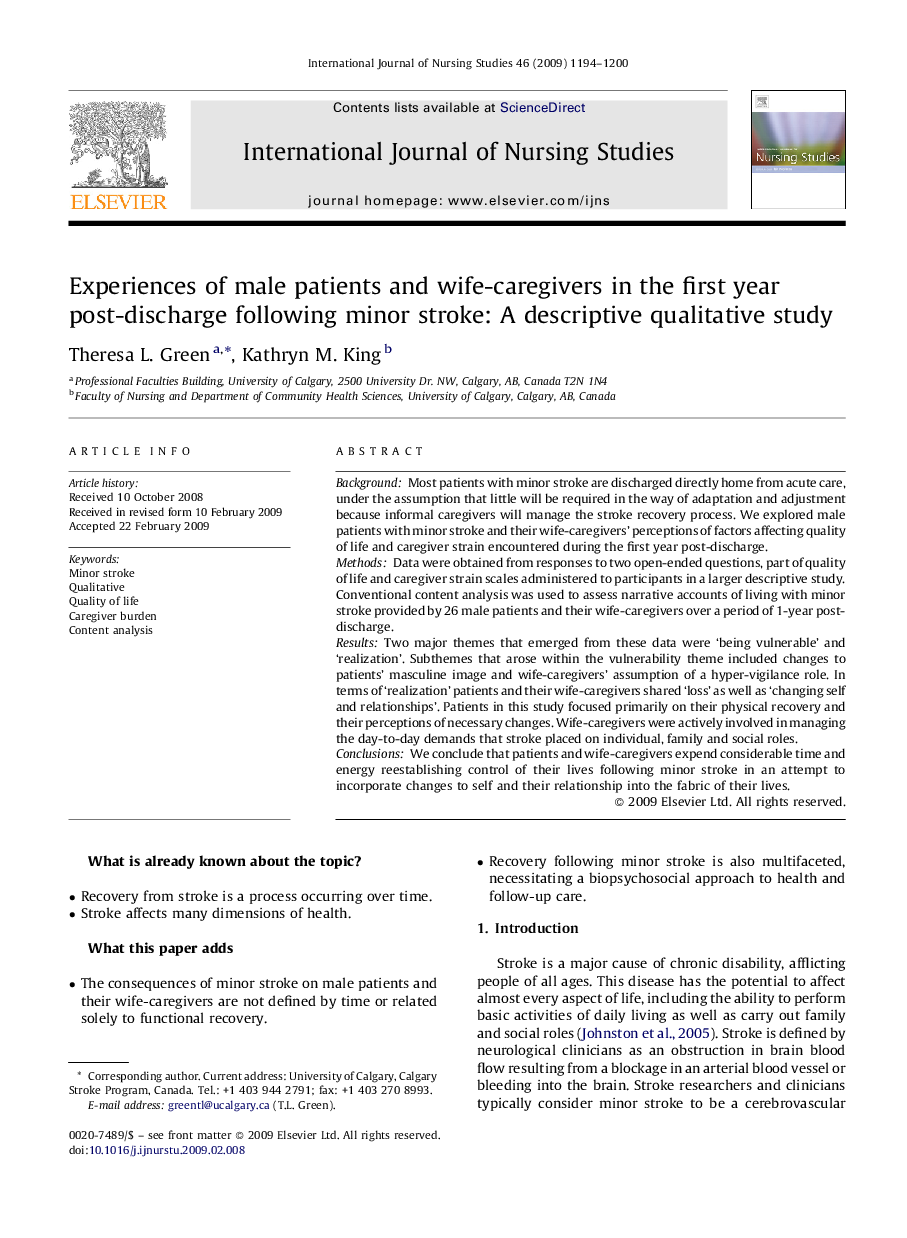| Article ID | Journal | Published Year | Pages | File Type |
|---|---|---|---|---|
| 1077276 | International Journal of Nursing Studies | 2009 | 7 Pages |
BackgroundMost patients with minor stroke are discharged directly home from acute care, under the assumption that little will be required in the way of adaptation and adjustment because informal caregivers will manage the stroke recovery process. We explored male patients with minor stroke and their wife-caregivers’ perceptions of factors affecting quality of life and caregiver strain encountered during the first year post-discharge.MethodsData were obtained from responses to two open-ended questions, part of quality of life and caregiver strain scales administered to participants in a larger descriptive study. Conventional content analysis was used to assess narrative accounts of living with minor stroke provided by 26 male patients and their wife-caregivers over a period of 1-year post-discharge.ResultsTwo major themes that emerged from these data were ‘being vulnerable’ and ‘realization’. Subthemes that arose within the vulnerability theme included changes to patients’ masculine image and wife-caregivers’ assumption of a hyper-vigilance role. In terms of ‘realization’ patients and their wife-caregivers shared ‘loss’ as well as ‘changing self and relationships’. Patients in this study focused primarily on their physical recovery and their perceptions of necessary changes. Wife-caregivers were actively involved in managing the day-to-day demands that stroke placed on individual, family and social roles.ConclusionsWe conclude that patients and wife-caregivers expend considerable time and energy reestablishing control of their lives following minor stroke in an attempt to incorporate changes to self and their relationship into the fabric of their lives.
